Dirk Helbing
Upgrading Democracies with Fairer Voting Methods
May 20, 2025



Abstract:Voting methods are instrumental design element of democracies. Citizens use them to express and aggregate their preferences to reach a collective decision. However, voting outcomes can be as sensitive to voting rules as they are to people's voting choices. Despite the significance and inter-disciplinary scientific progress on voting methods, several democracies keep relying on outdated voting methods that do not fit modern, pluralistic societies well, while lacking social innovation. Here, we demonstrate how one can upgrade real-world democracies, namely by using alternative preferential voting methods such as cumulative voting and the method of equal shares designed for a proportional representation of voters' preferences. By rigorously assessing a new participatory budgeting approach applied in the city of Aarau, Switzerland, we unravel the striking voting outcomes of fair voting methods: more winning projects with the same budget and broader geographic and preference representation of citizens by the elected projects, in particular for voters who used to be under-represented, while promoting novel project ideas. We provide profound causal evidence showing that citizens prefer proportional voting methods, which possess strong legitimacy without the need of very technical specialized explanations. We also reveal strong underlying democratic values exhibited by citizens who support fair voting methods such as altruism and compromise. These findings come with a global momentum to unleash a new and long-awaited participation blueprint of how to upgrade democracies.
LLM Voting: Human Choices and AI Collective Decision Making
Jan 31, 2024
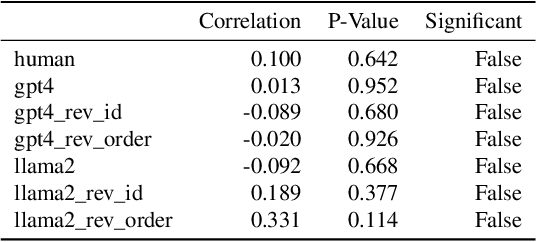
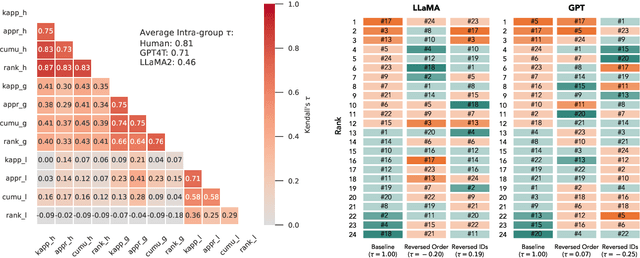
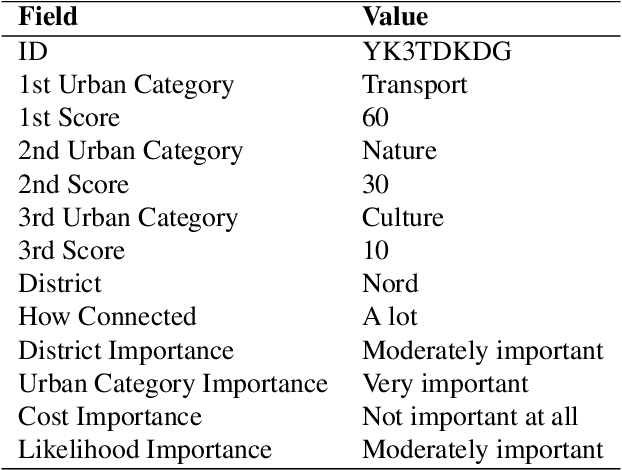
Abstract:This paper investigates the voting behaviors of Large Language Models (LLMs), particularly OpenAI's GPT4 and LLaMA2, and their alignment with human voting patterns. Our approach included a human voting experiment to establish a baseline for human preferences and a parallel experiment with LLM agents. The study focused on both collective outcomes and individual preferences, revealing differences in decision-making and inherent biases between humans and LLMs. We observed a trade-off between preference diversity and alignment in LLMs, with a tendency towards more uniform choices as compared to the diverse preferences of human voters. This finding indicates that LLMs could lead to more homogenized collective outcomes when used in voting assistance, underscoring the need for cautious integration of LLMs into democratic processes.
Nanowars can cause epidemic resurgence and fail to promote cooperation
Jan 13, 2022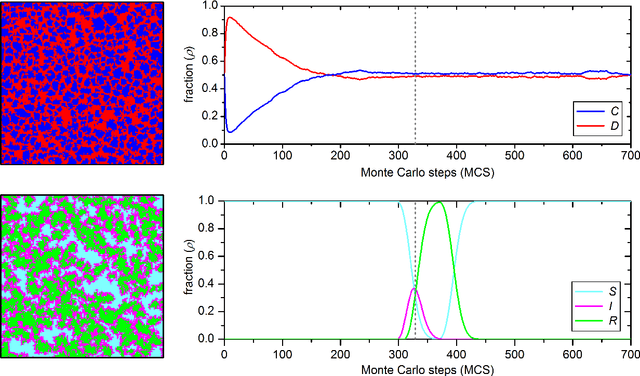


Abstract:In a non-sustainable, "over-populated" world, what might the use of nanotechnology-based targeted, autonomous weapons mean for the future of humanity? In order to gain some insights, we make a simplified game-theoretical thought experiment. We consider a population where agents play the public goods game, and where in parallel an epidemic unfolds. Agents that are infected defectors are killed with a certain probability and replaced by susceptible cooperators. We show that such "nanowars", even if aiming to promote good behavior and planetary health, fail not only to promote cooperation, but they also significantly increase the probability of repetitive epidemic waves. In fact, newborn cooperators turn out to be easy targets for defectors in their neighborhood. Therefore, counterintuitively, the discussed intervention may even have the opposite effect as desired, promoting defection. We also find a critical threshold for the death rate of infected defectors, beyond which resurgent epidemic waves become a certainty. In conclusion, we urgently call for international regulation of nanotechnology and autonomous weapons.
How Value-Sensitive Design Can Empower Sustainable Consumption
May 14, 2020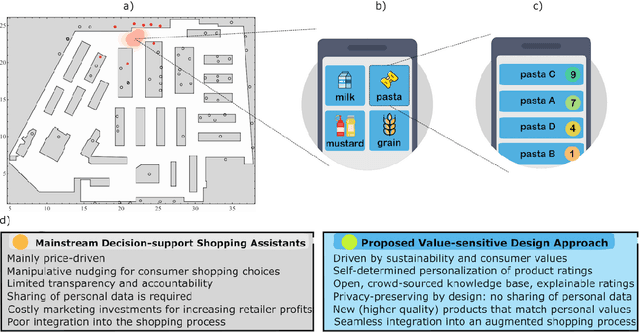
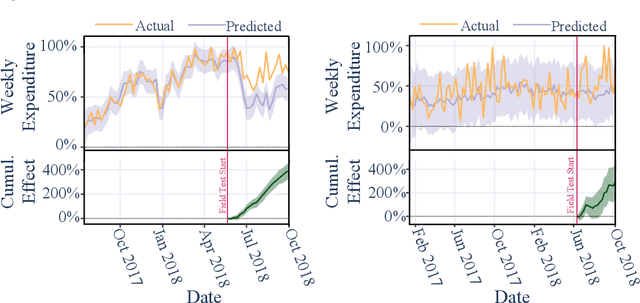
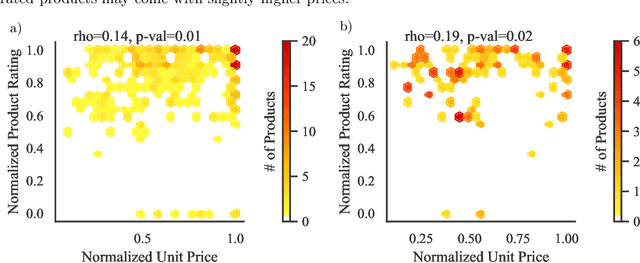
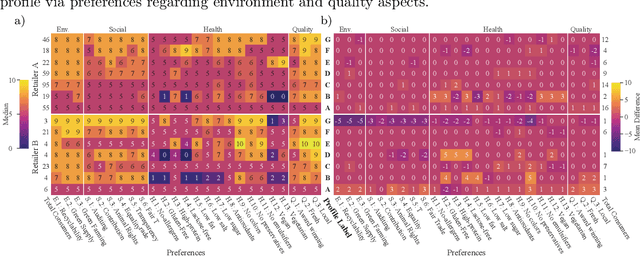
Abstract:In a so-called overpopulated world, sustainable consumption is of existential importance. The expanding spectrum of product choices and their production complexity challenge consumers to make informed and value-sensitive decisions. Recent approaches based on (personalized) psychological manipulation are often intransparent, potentially privacy-invasive and inconsistent with informational self-determination. In contrast, responsible consumption based on informed choices currently requires reasoning to an extent that tends to overwhelm human cognitive capacity. As a result, a collective shift towards sustainable consumption remains a grand challenge. Here we demonstrate a novel personal shopping assistant that empowers a value-sensitive design and leverages sustainability awareness, using experts' knowledge and "wisdom of the crowd" for transparent product information and explainable products ratings. Real-world field experiments in two supermarkets confirm higher sustainability awareness and a bottom-up behavioral shift towards more sustainable consumption. These results encourage novel business models for retailers and producers, ethically aligned with consumer values and higher sustainability.
Sensing Social Media Signals for Cryptocurrency News
Mar 27, 2019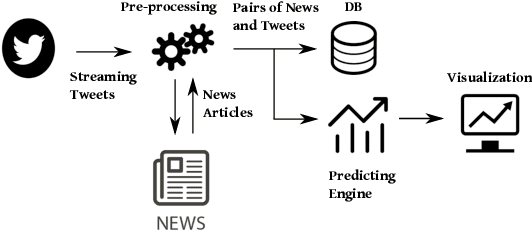
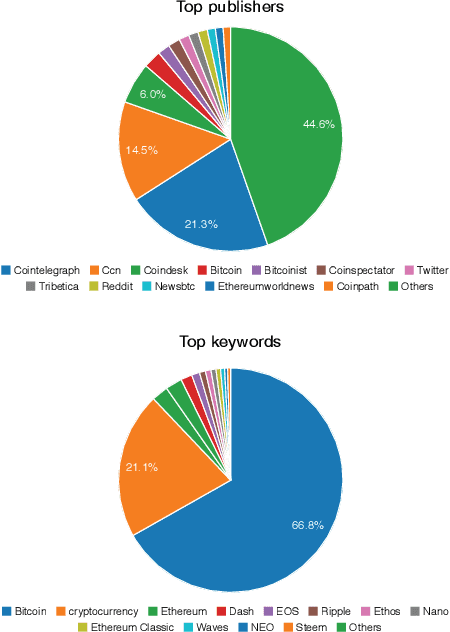

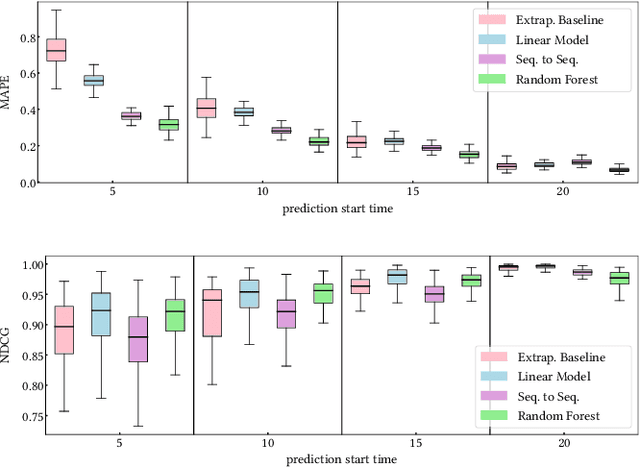
Abstract:The ability to track and monitor relevant and important news in real-time is of crucial interest in multiple industrial sectors. In this work, we focus on the set of cryptocurrency news, which recently became of emerging interest to the general and financial audience. In order to track relevant news in real-time, we (i) match news from the web with tweets from social media, (ii) track their intraday tweet activity and (iii) explore different machine learning models for predicting the number of the article mentions on Twitter within the first 24 hours after its publication. We compare several machine learning models, such as linear extrapolation, linear and random forest autoregressive models, and a sequence-to-sequence neural network. We find that the random forest autoregressive model behaves comparably to more complex models in the majority of tasks.
When slower is faster
Oct 19, 2015Abstract:The slower is faster (SIF) effect occurs when a system performs worse as its components try to do better. Thus, a moderate individual efficiency actually leads to a better systemic performance. The SIF effect takes place in a variety of phenomena. We review studies and examples of the SIF effect in pedestrian dynamics, vehicle traffic, traffic light control, logistics, public transport, social dynamics, ecological systems, and adaptation. Drawing on these examples, we generalize common features of the SIF effect and suggest possible future lines of research.
 Add to Chrome
Add to Chrome Add to Firefox
Add to Firefox Add to Edge
Add to Edge